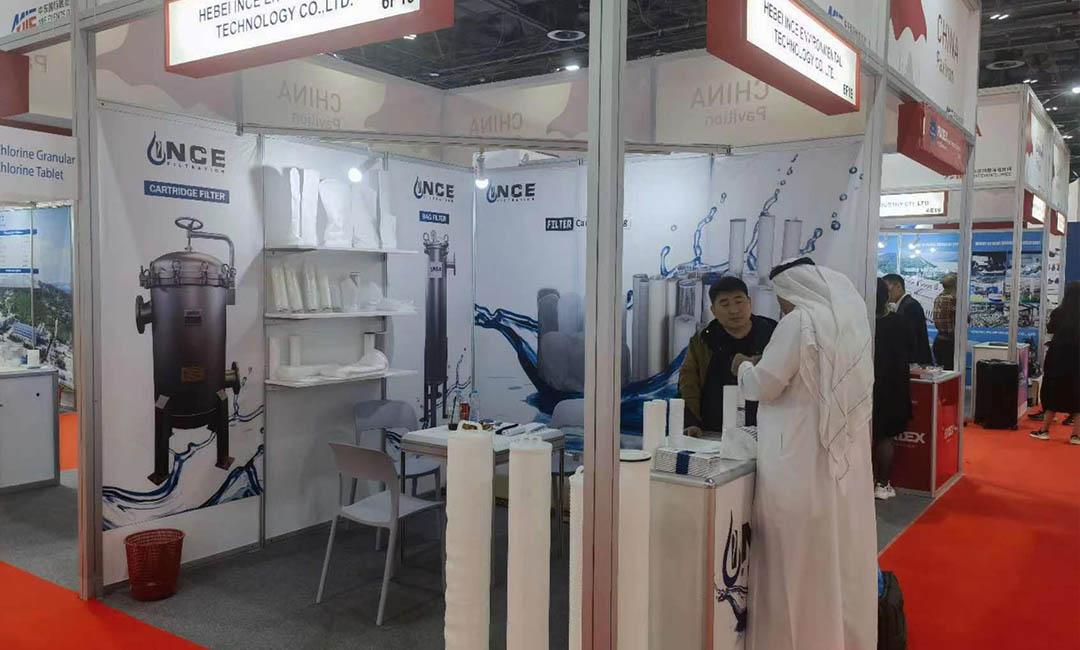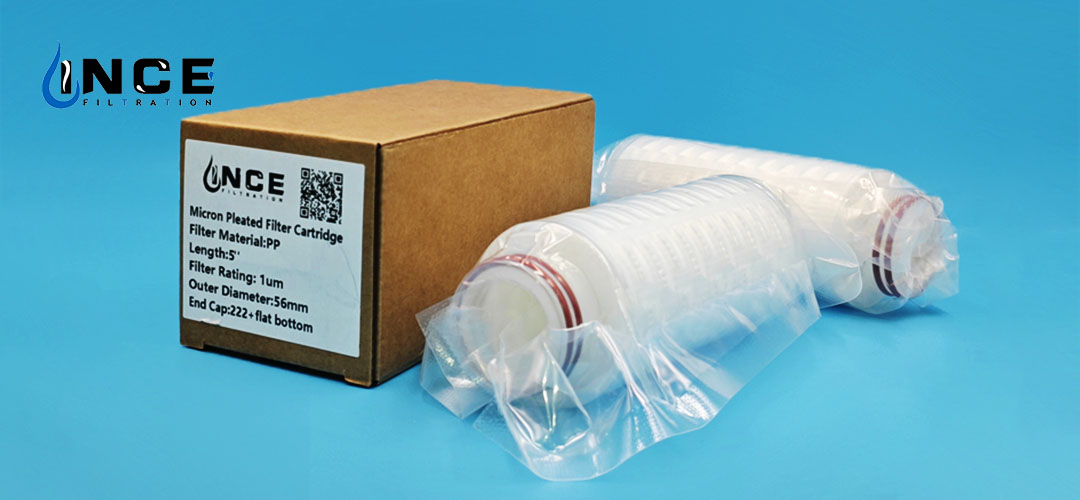Chemical-Resistant Polypropylene Pleated Filters for Every Need
Benefits of Using Chemical-Resistant Polypropylene Pleated Filters
Chemical-resistant polypropylene pleated filters are a versatile and reliable solution for a wide range of filtration needs. These filters are designed to withstand exposure to a variety of chemicals, making them ideal for use in industries where harsh chemicals are present. From pharmaceuticals to food and beverage production, chemical-resistant polypropylene pleated filters offer a number of benefits that make them a popular choice for many applications.
One of the key benefits of using chemical-resistant polypropylene pleated filters is their durability. These filters are made from high-quality materials that are designed to withstand exposure to a wide range of chemicals without degrading or breaking down. This means that they can be used in even the most demanding environments without compromising their effectiveness.
In addition to their durability, chemical-resistant polypropylene pleated filters are also highly effective at removing contaminants from liquids and gases. The pleated design of these filters provides a large surface area for filtration, allowing them to capture a high volume of particles and impurities. This makes them an excellent choice for applications where clean, pure fluids are essential.
Another benefit of using chemical-resistant polypropylene pleated filters is their versatility. These filters are available in a wide range of sizes and configurations, making it easy to find the perfect filter for any application. Whether you need a small filter for a laboratory setting or a large filter for an industrial process, there is a chemical-resistant polypropylene pleated filter that will meet your needs.
Furthermore, chemical-resistant polypropylene pleated filters are easy to install and maintain. They can be quickly and easily replaced when needed, minimizing downtime and ensuring that your filtration system continues to operate at peak efficiency. This makes them a cost-effective option for businesses looking to improve their filtration processes.
In conclusion, chemical-resistant polypropylene pleated filters offer a number of benefits that make them an excellent choice for a wide range of filtration needs. Their durability, effectiveness, versatility, and ease of maintenance make them a reliable and cost-effective solution for industries where exposure to harsh chemicals is a concern. Whether you are in the pharmaceutical, food and beverage, or any other industry that requires reliable filtration, chemical-resistant polypropylene pleated filters are a smart choice.
Applications of Chemical-Resistant Polypropylene Pleated Filters
Chemical-resistant polypropylene pleated filters are a versatile and reliable solution for a wide range of filtration needs. These filters are designed to withstand exposure to a variety of chemicals, making them ideal for use in industries where harsh chemicals are present. From pharmaceuticals to food and beverage production, chemical-resistant polypropylene pleated filters offer superior performance and durability.
One of the key applications of these filters is in the pharmaceutical industry. Pharmaceutical manufacturing processes often involve the use of strong acids, bases, and solvents that can degrade traditional filter materials. Chemical-resistant polypropylene pleated filters are able to withstand exposure to these chemicals without compromising their filtration efficiency. This makes them an essential component in ensuring the purity and safety of pharmaceutical products.
In the food and beverage industry, chemical-resistant polypropylene pleated filters are used to remove impurities and contaminants from liquids and gases. These filters are capable of filtering out particles as small as 0.2 microns, making them highly effective at removing bacteria, viruses, and other harmful substances. This level of filtration is crucial in ensuring the quality and safety of food and beverage products.
Another important application of chemical-resistant polypropylene pleated filters is in the water treatment industry. These filters are used to remove contaminants such as chlorine, sediment, and organic matter from water, making it safe for consumption. Chemical-resistant polypropylene pleated filters are able to maintain their filtration efficiency even in the presence of high levels of chlorine, making them an ideal choice for water treatment applications.

In the automotive industry, chemical-resistant polypropylene pleated filters are used in a variety of applications, including paint booths and parts cleaning processes. These filters are able to withstand exposure to solvents and other chemicals commonly used in automotive manufacturing, ensuring that the air and water in these facilities remain clean and free of contaminants. This helps to protect workers from exposure to harmful chemicals and ensures the quality of automotive products.
Chemical-resistant polypropylene pleated filters are also used in the electronics industry, where they are used to remove contaminants from air and water used in manufacturing processes. These filters are able to withstand exposure to a wide range of chemicals, making them an essential component in ensuring the quality and reliability of electronic products. By removing contaminants from air and water, chemical-resistant polypropylene pleated filters help to prevent damage to sensitive electronic components and ensure the performance of electronic devices.
In conclusion, chemical-resistant polypropylene pleated filters are a versatile and reliable solution for a wide range of filtration needs. From pharmaceuticals to food and beverage production, water treatment, automotive manufacturing, and electronics, these filters offer superior performance and durability in the presence of harsh chemicals. By choosing chemical-resistant polypropylene pleated filters, industries can ensure the purity, safety, and quality of their products while protecting workers and the environment from exposure to harmful chemicals.
How to Choose the Right Chemical-Resistant Polypropylene Pleated Filter for Your Needs
Chemical-Resistant Polypropylene Pleated Filters for Every Need

When it comes to choosing the right chemical-resistant polypropylene pleated filter for your needs, there are several factors to consider. These filters are designed to withstand exposure to a wide range of chemicals, making them ideal for various applications in industries such as pharmaceuticals, food and beverage, and water treatment. However, not all filters are created equal, and it is important to select the right one for your specific requirements.

One of the first things to consider is the pore size of the filter. The pore size determines the size of particles that can pass through the filter. If you are filtering large particles, such as debris or sediment, a filter with a larger pore size may be suitable. On the other hand, if you need to remove smaller particles, such as bacteria or viruses, a filter with a smaller pore size is necessary. It is important to choose a filter that can effectively remove the contaminants you are targeting.
Another important factor to consider is the flow rate of the filter. The flow rate refers to the amount of liquid that can pass through the filter in a given amount of time. If you have a high flow rate requirement, such as in a large-scale industrial application, you will need a filter that can handle a higher volume of liquid. On the other hand, if you have a lower flow rate requirement, such as in a laboratory setting, a filter with a lower flow rate may be sufficient. It is important to choose a filter that can meet your specific flow rate needs.
Chemical compatibility is also a crucial consideration when choosing a chemical-resistant polypropylene pleated filter. Different filters are designed to withstand exposure to different chemicals, and it is important to select a filter that is compatible with the chemicals you will be filtering. Some filters are resistant to a wide range of chemicals, while others may only be suitable for specific chemicals. It is important to carefully review the chemical compatibility information provided by the manufacturer to ensure that the filter you choose can withstand exposure to the chemicals you will be working with.
In addition to pore size, flow rate, and chemical compatibility, it is also important to consider the size and configuration of the filter. Filters come in various sizes and configurations, including different lengths and diameters. The size and configuration of the filter will depend on the specific application and the equipment it will be used with. It is important to choose a filter that is compatible with your existing equipment and can be easily installed and replaced when necessary.
Lastly, it is important to consider the cost of the filter. While it may be tempting to choose the cheapest option available, it is important to remember that quality is key when it comes to chemical-resistant polypropylene pleated filters. Investing in a high-quality filter may cost more upfront, but it will likely last longer and provide better filtration performance. It is important to weigh the cost against the benefits and choose a filter that offers the best value for your specific needs.
In conclusion, choosing the right chemical-resistant polypropylene pleated filter for your needs requires careful consideration of factors such as pore size, flow rate, chemical compatibility, size and configuration, and cost. By taking the time to evaluate these factors and select a filter that meets your specific requirements, you can ensure that you are getting the best filtration performance and value for your investment.
